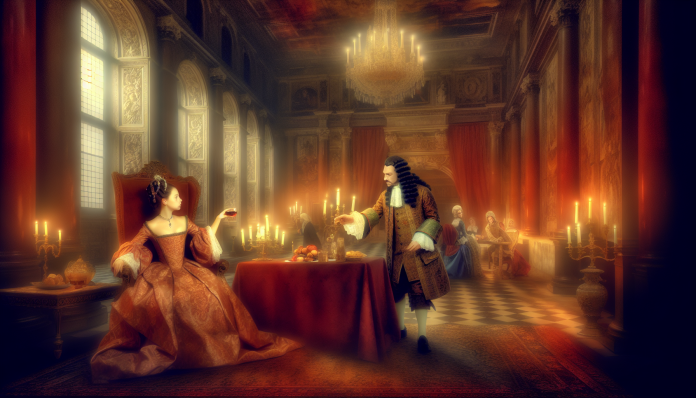The Hidden Mistresses of Winston Churchill: Rumors and Reality
Introduction
Winston Churchill, the indomitable leader of Britain during World War II, is celebrated for his anthemic speeches, strategic prowess, and resolute spirit. Yet beneath this respected exterior lies an intriguing tapestry woven with rumors of romantic entanglements, most notably with various women who were rumored to be his mistresses. This article delves into the hidden aspects of Churchill’s personal life, exploring the nature of these rumored affairs and contrasting the moral landscape of the 20th century with contemporary values. By examining this historical scandal, we can reflect on how notions of relationship morality and the behavior of powerful men have evolved over time.
The Scandal
The whispers of Winston Churchill’s affairs started circulating in the early 20th century—a period marked by relatively conservative societal norms, particularly regarding fidelity and sexuality. While Churchill was a married man, the intrigues of his personal life often played second fiddle to the grand narrative of his political career.
Key Players: The Rumored Mistresses
Among the names mentioned in connection with Churchill’s alleged affairs, one stands out: Clementine Churchill, his devoted wife, who supported him through thick and thin. However, the real stories often involved women such as:
-
Lady Frances Stevenson: A close confidant and assistant, she reportedly held a special place in Churchill’s life, and rumors of an intimate relationship circulated through the circles of British high society.
-
Mabel Rangely: A mistress whose liaison with Churchill is documented in various letters and correspondences, highlighting the blurred boundaries between friendship and romance.
- Margaret, Duchess of Argyll: Allegations linked her to Churchill, although such claims often lacked concrete evidence, existing largely within the realm of speculation fueled by societal gossip.
The Public Reaction
During the 1920s and 1930s, the British public held conflicting views on affairs and infidelity. While the Victorian ethos still influenced societal expectations, the tumult of World War I had started to shift moral standards. The Churchills were a prominent couple; hence, rumors about Winston affected public perception. The prevailing sentiment among many in the aristocracy and even in the working class leaned toward a mixture of admiration and disdain. With the backdrop of Churchill’s war efforts, the public often turned a blind eye, prioritizing his political contributions over personal indiscretion.
Some contemporaries, including political rivals, sought to tarnish Churchill’s name by digging into his romantic escapades. However, Winston’s charisma and leadership style often overshadowed these whispers, allowing him to retain a level of public respect.
Moral and Cultural Analysis
Societal Reaction at the Time
While Churchill was not publicly outed about his alleged affairs, the reaction among both the media and societal elites mirrored a delicate balance of intrigue and tolerance given his status. Exploring the consequences:
Modern Perspective
Fast-forward to today: if a contemporary political figure were linked to similar rumors of infidelity, the narrative may play out very differently, given evolving moral standards. Our present cultural lens demands higher accountability, especially from public figures. Considerations might include:
-
Media Scrutiny: Current tabloid culture would exploit such revelations, amplifying the scandal and demanding resignations even if evidence were flimsy.
-
Gender Dynamics: Conversations about infidelity are increasingly inclusive, considering impacts on all involved, challenging legacy notions that allowed powerful men to sidestep criticism.
- Empowerment: Modern audiences often advocate for transparency and equality, suggesting that a leader’s personal life ought to reflect ethical commitments, particularly regarding how they treat intimate partners.
Conclusion
The hidden mistresses of Winston Churchill offer a fascinating glimpse into a central paradox of power and personal life. This saga not only sheds light on the conflicted moral fibers that bound early 20th-century British society but also serves as a stark contrast to the evolving values of today. A contemporary audience is likely to view such infidelities through a lens of accountability and modern moral frameworks, interpreting the events as a failure to uphold personal integrity.
As we dissect the past, it becomes increasingly clear that the way we perceive relationships—especially within the narrative of power—continues to shift. In examining scandals like Churchill’s, we’re not only uncovering hidden truths about a historical figure but also grappling with broader societal changes regarding intimacy and authority.
This reflection encourages us to think critically about figures from history and the complexities of their legacies. As we engage with past narratives, we can better understand our evolving values and the continuous dance between personal freedom, power, and society’s expectations.

